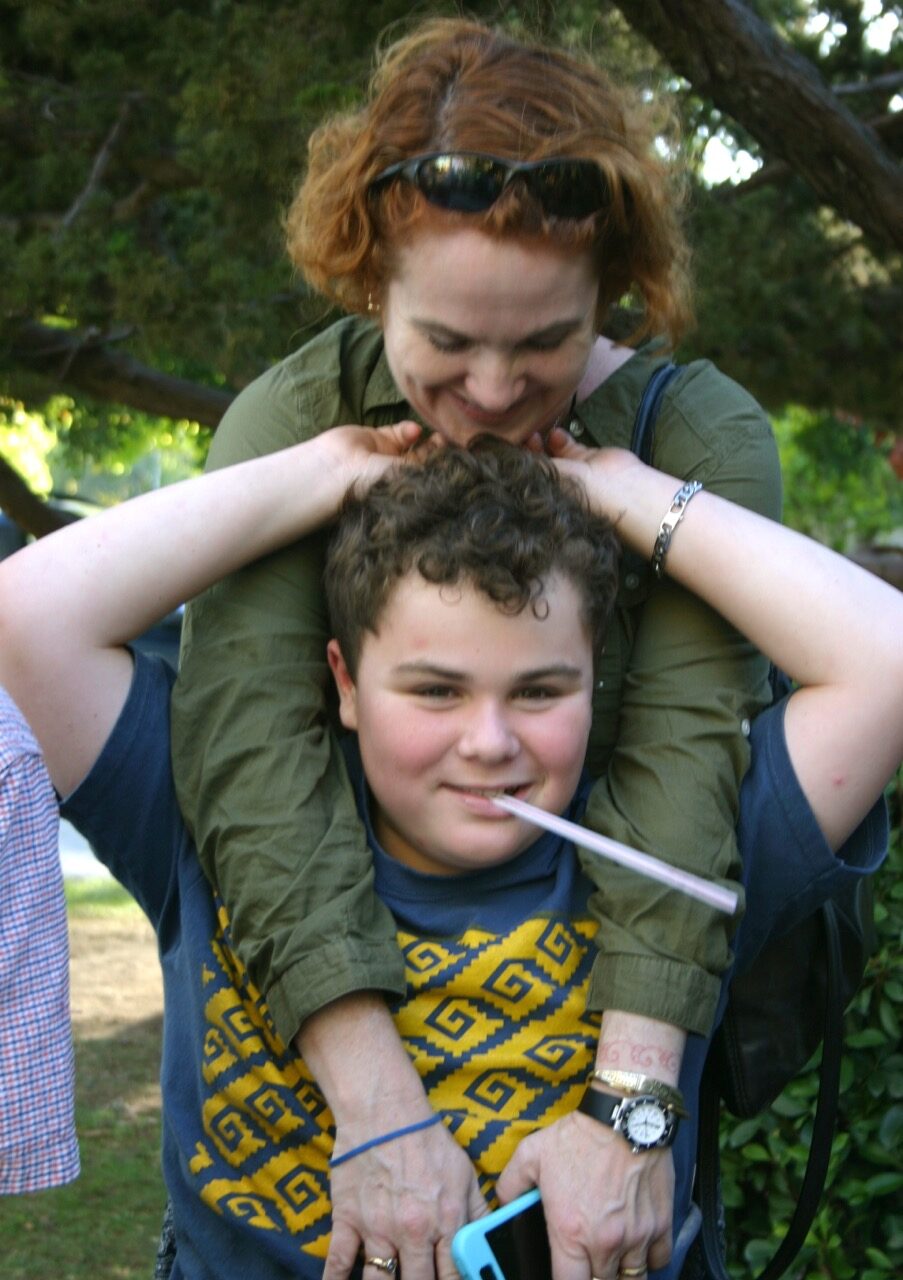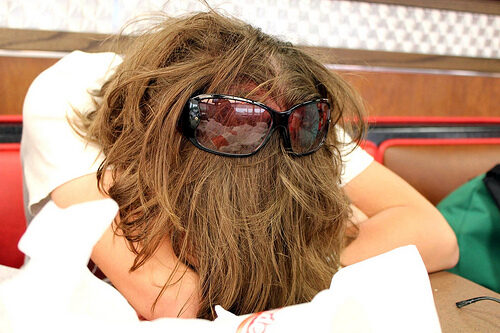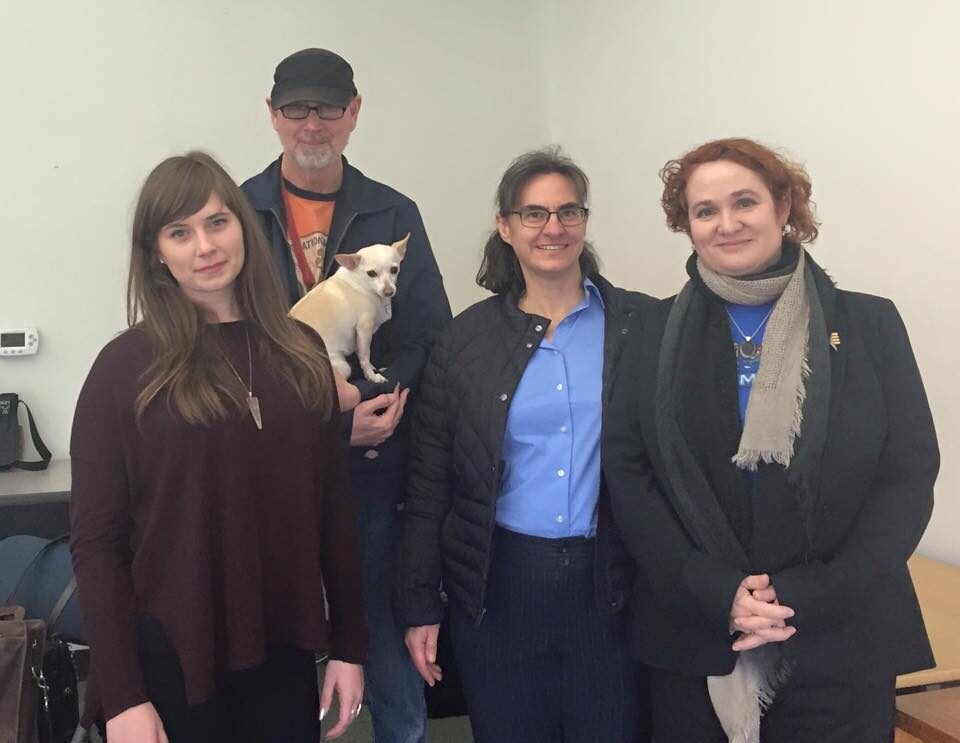Shannon Des Roches Rosa www.squidalicious.com Content note: This article discusses abuse and murder. Photo © Steve Silberman [image: a white woman, standing behind a white teen boy with brown curly short hair. He is looking at the camera. Her arms are over his shoulder, his arms are up and tickling under her chin.] When parents like me talk about our kids with disabilities and intense support needs, we have to be thoughtful. We need to make it quite clear that our kids are much-loved and very awesome human beings. We should never, ever state or imply that any challenges we face as a parent are our children’s fault. We need to handle their privacy with delicacy. And we shouldn’t accidentally enable disrespect towards children who are already too-frequent magnets for morbid fascination, and pity. But we do need to talk, because our parenting gig is not like other parenting gigs.…
Tag: crisis
When autistic people have unreliable and intermittent speech, a crisis can go past stressful to life-endangering. Max Sparrow talks about coping methods and strategies for handling such crises.
Maxfield Sparrow unstrangemind.com A mother’s worst nightmare: That’s what Anna thinks she might be facing at the beginning of Donna Levin’s spellbinding novel There’s More Than One Way Home. It’s 2004 and Anna has accompanied her Autistic son, Jack, as a class chaperone on a field trip to Minotaur Island near San Francisco. When four children—Jack among them—turn up missing, Anna fears the worst. Everyone pulls together to comb the island, and the boys are found. One is dead after all, but to Anna’s guilty relief, it is not her Jack. Thus begins a mother’s second worst nightmare, as Jack is accused of murder. The story unfolds from there: Jack’s loving but authoritarian father’s hands are tied with respect to the case, since he is the district attorney and thus has a conflict of interest. Free-spirited Doctor Valentine helps keep Jack out of the crushing institutionalization of the combined penal and psychiatric…
–> Shannon Des Roches Rosa Senior Editor, Thinking Person’s Guide to Autism Why do some autistic children and teens become self-injurious or aggressive? How can parents and caregivers help the kids in their care get through meltdowns safely, protect the kids themselves as well as family members, and anticipate and avoid future incidents? This was the topic of a recent workshop I moderated at Support for Families of Children With Disabilities, in San Francisco, with speakers Dr. Clarissa Kripke, Brent White, and Lindsey Anderson. The presenters covered a lot of material, which we’ll publish here in three parts: Overview (Shannon Des Roches Rosa) Medical and trauma-informed practices (Dr. Clarissa Kripke) Autistic professional and personal insights (Brent White and Lindsey Anderson) The workshop was well-attended (standing room only), engaged and productive. One of my favorite parts was that, after a short explanation of why “flappause,” or flapping one’s hands for applause,…
Beth Ryan www.loveexplosions.net So, as an administrator of Parenting Autistic Children with Love and Acceptance, I’ve seen a lot of questions from parents asking, “Where were you when Kelli Stapleton needed help with her daughter, Issy?” And, “Did you donate to Issy’s treatment?” These questions are asked of Autistic activists and parents of Autistic children who are outraged at the attempted murder of Issy by her own mother, Kelli. Those that have zero empathy for Kelli. Those that believe that parents that would murder their own disabled children are as accountable as parents that murder their own non-disabled children–and that the prosecution of these criminals should reflect that without exception. Oh no, you do not get to lay the blame of this massive tragedy at my feet or at those of Autistic activists. Let me start by telling you where I was. I was first, and foremost, taking care of my own…
Hurricane Sandy disrupted so many lives and displaced so many people in our autism, disability, and special ed communities. Many of those affected are still struggling to bring routine, safety, and necessities back into their lives — and not all who need assistance are getting the support they need. Here are two personal accounts about what’s not working right now in Sandy’s aftermath, what needs to change, and — for those who want to help — how it’s so much more important to donate money than goods. Carol Greenburg aspieadvocate-ascd.blogspot.com I am the autistic mother of an autistic 10-year-old. I want to share something that happened in the aftermath of Hurricane Sandy. My son, who has not had school or therapy for a week and is disconsolate over the disruption of his routine, finally had some therapy scheduled for this morning. Public transit is not yet well restored enough in…
How the right accommodations helped one autistic student instantly go “from being a misunderstood, odd child with behavior problems to being a supported autistic child.”
Carol Greenburg aspieadvocate-ascd.blogspot.com I could have kicked myself for not getting the name of the wonderful New York City police officer who pulled me over the other night. I’m a safe driver for the most part, but Asperger’s sometimes interferes with my perceptions whether I’m standing still or navigating a dark road. It was rainy, I was distracted, and if I can’t even read body language … Well, I was as I so often am, stumped. Even at my best it’s sometimes unclear to me why people honk their horns at me, so when the cop driving behind me started waving his hands I didn’t know if wanted me to get out of his way or whether he was trying to pull me over. Turns out it was the latter. I know this because he used his loudspeaker to announce to all of SoHo that I was to put my car…



